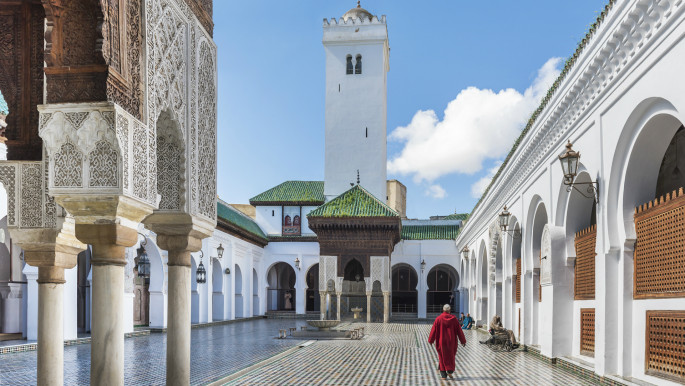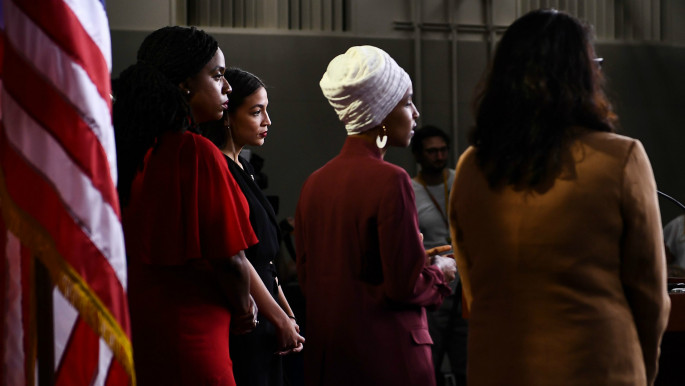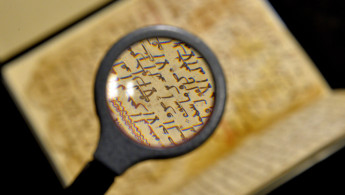Remarkable Muslim women throughout history: Commemorating International Women's Day
This negative narrative of Muslim women is not my reality. That is because across the Islamic world, women have been at the forefront of history, asserting their power way before women had any rights in the West.
Patriarchy is definitely a problem; it has been and still is for ALL females. However, since Islam came with a radical message that granted women unprecedented rights, Muslim women have been fighting to hold their own in a male dominated world.
Women across Muslim lands have held all kinds of progressive roles. The dominating male landscape has downplayed these contributions over the years, but thankfully their legacy lives on.
I have selected a diverse group of Muslim women whose stories continue to inspire, and are a reminder that women have not been bystanders, but active participants on the world stage.
Rabia Al-Adawiyah (718-801)
The connection between women and Sufi mysticism has a long history leading back to the early days of Islam.
The first known female Sufi was a lady called Rabi'ah al-Adawiyah who was born in Basra, Iraq.
She shaped many Sufi ideals, and initiated the tradition of love for God without fear.
Rabi'ah guided both men and women on matters of spirituality. Her role and prominence in the development of Sufism is a challenge to those who do not accept women mystics.
Fatima al-Fihri (800-880)
 |
|
| Read also: Morocco's al-Qarawiyyin library: Renovating a hidden cultural masterpiece |
Fatima al-Fihri founded and built the world's first and oldest university in the world (UNESCO), the Al-Qarawiyyin mosque and university in Fez, Morocco. It was built in 859.
Fatima paid for it to be built with her inheritance, and it took 18 years to complete. She named it after her hometown in Tunisia.
Unfortunately, we still live in a world where some girls and women put their lives in danger to gain knowledge. In 2012, Malala Yousafzai was shockingly shot in the head by the Taliban for her right to pursue an education. This attitude is sad and ironic, considering the first university in the world was founded by a Muslim women.
Razia Sultan (1205-1240)
Razia Sultan, the first woman Sultan of India, ruled the court of Delhi from 1236 to 1240. She did not want to be called Sultana, and insisted on the male term, Sultan.
She was a ruler of the Delhi Sultanate, who were part of the Mamluk slave dynasty.
Her father was Sultan Shams-us-din Iltutmish, and Razia was his only daughter. Iltutmish ensured Razia was well educated and trained in archery, martial arts, and administration.
Razia's father felt she would be a much better ruler than any of his sons. In a surprise move, he appointed her as his heir.
As ruler, she would appear in public dressed in traditional male attire. She rode on elephants through the streets of Delhi, making public appearances like the earlier Sultans.
She ruled efficiently, establishing law and order in Delhi. Her most trusted ally was an Ethiopian slave, Malik Yaqut, whom she appointed to a prominent position at court.
Nur Jahan (1577-1645)
Nur Jahan was the wife of Mughal Emperor, Jahangir.
The love story between the emperor and his wife is well documented, but she was much more than an object of the ruler's affections.
She ruled alongside her husband, was very powerful and made important decisions.
Nur Jahan hunted tigers, which at the time was only the privilege of the sovereign. "The fact that Nur Jahan as a Queen hunted tigers tells us about her power in the court, which was almost equal to that of the Emperor." (The Heritage Lab).
She had a key role in getting the Emperor released when he was taken captive by Mahabat Khan in 1626. She led the army into battle herself. There is a well-known image of Nur Jahan holding a gun, kept at the Rampur Raza library.
Nur Jahan was one of the most influential leaders of the 17th century, a truly awe-inspiring Muslim woman.
Jahanara Begum (1614-1681)
Jahanara Begum was a Mughal princess. She was the eldest child of Mughal Emperor Shah Jahan and his wife, Mumtaz Mahal.
After her mother's untimely death in 1631, 17-year-old Jahanara became the Padshah Begum (First Lady) of the Mughal Empire.
She held immense influence over the court, and has been described by Catherine Asher as "the most powerful woman in the empire" at the time.
Mughal women were at front and centre of the empire. They were just as involved and invested as the men.
Jahanara embraced Sufism, and was initiated into the Qadririyya Sufi order. She was an accomplished poet, well-respected author and architect.
Ilhan Omar (US Congresswoman)
 |
|
| Read also: Who are the Squad and what do they represent? |
lhan Omar might only be five feet foot tall, but she is a presence to be reckoned with.
The 38-year-old mother of three is the first Somali-American, first African-born American, and one of the first two Muslim American women (alongside Rashida Tlaib) to serve in the US Congress.
Ilhan and her family fled civil war in Somalia, and lived in refugee camps for many years. Her story is one of struggle, which is why she fights passionately for the rights of minorities.
These examples of trailblazing Muslim women are just a drop in the ocean. As we mark International Women's Day, it is important to remember the female role models who have paved the way for our rights and freedoms.
Let's #choosetochallenge harmful gender narratives, and stand together to tackle abuse by those who cannot handle our innate strength and power.
Nadia Khan is a historian and writer. She is the founder of Golden Threads: A project exploring shared history, culture and art across the Islamic world and beyond.
Follow her on Instagram @nadia.khan30



